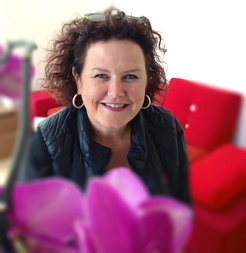ALBA-FKNE Diversity Prize 2020 awarded to Erin Schuman
Professor Erin Schuman has been awarded the Diversity prize 2020 for her contribution to advancing gender equality in brain research
The prize highlights a scientist or group that has made outstanding contributions to promoting diversity in brain sciences and is a partnership between the ALBA Network and the FENS Kavli Network of Excellence (FKNE), with the support of the FENS CHET (Committee of Higher Education and Training of the Federation of European Neuroscience Societies). The announcement was made on Monday 13th July 2020 in the Open Theatre of the FENS 2020 Virtual Forum and on FENS social media channels under the form of a video.

“It is important to recognise actions taken by scientists – often without personal gain – to promote diversity in order to create role models and inspire others in the neuroscience community to think on how they can also act to the support the cause”, said Dr Andrew Lin, FENS Kavli Scholar and chair of the ALBA-FKNE Diversity Prize Committee. “Prof Schuman exemplifies such commitment by furthering the cause of women in science at every occasion. For example, she regularly pushes for gender balance in recruitment and evaluation panels or speakers at meetings she is involved in. The achievements of Prof Schuman reflect the mission of ALBA and FKNE to support initiatives for a more inclusive scientific community.”
Prof. Erin Schuman, Director of the Department of Synaptic Plasticity at the Max Planck Institute for Brain Research in Frankfurt, received the award and a €2,000 prize for her constant efforts in fostering gender equality in neuroscience. Among other issues, she has been very active in reducing the burden of childcare - that often falls more heavily on women. While working at Caltech, she was a pioneer in implementing the policy to automatically extend tenure clocks for parents. When taking on her position at the Max Planck Institute, she pushed for the creation of a childcare facility on campus and for local infant care. Schuman stressed the importance of continuing to work on increasing diversity in science: “The notion of diversity is important in life, particularly in science, where we rely on creativity to generate new hypotheses in order to learn how the brain works. To make use of only one half the population, one half of the brain power, will slow us down.”
The ALBA-FKNE Diversity Prize, awarded for the first time in 2020, will be celebrated every year at the FENS Forums of Neuroscience and FENS Regional Meetings.
***
The ALBA Network aims to promote equity and diversity in the brain sciences. The goal of ALBA is to establish a global network in order to share best practices and provide better visibility, networking and mentoring opportunities to scientists from underrepresented groups in brain research.
The FENS-Kavli Network of Excellence (FKNE) is a self-organised and
multidisciplinary Network comprising 30 outstanding early- to mid-career independent European neuroscientists. Inaugurated in 2014 by FENS and The Kavli Foundation, FKNE aims to improve neuroscience research in Europe and beyond through scientific exchange, providing opportunities for young scientists and facilitating dialogue between scientists, policymakers, and society.
The FENS Committee of Higher Education and Training (CHET) is responsible for the short-term strategy and for science-related issues around the implementation and development of programmes for higher education and training within the Federation of European Neuroscience Societies (FENS).











